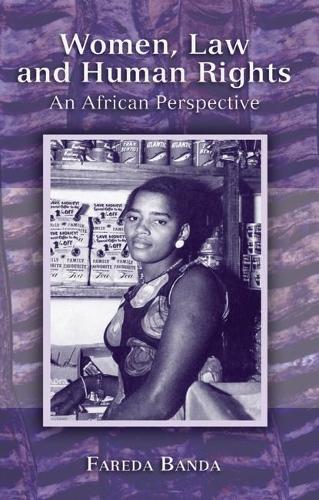
Women, Law and Human Rights: An African Perspective
(Hardback)
Publishing Details
Women, Law and Human Rights: An African Perspective
By (Author) Dr Fareda Banda
Bloomsbury Publishing PLC
Hart Publishing
4th October 2005
United Kingdom
Classifications
Professional and Scholarly
Non Fiction
Human rights, civil rights
Gender studies: women and girls
342.60878
Physical Properties
Hardback
456
Width 156mm, Height 234mm, Spine 35mm
876g
Description
Africa, with its mix of statute, custom and religion is at the center of the debate about law and its impact on gender relations. This is because of the centrality of the gender question and its impact on the cultural relativism debate within human rights. It is therefore important to examine critically the role of law, broadly constructed, in African societies. The book focuses on women's experiences in the family. This is because the lives of women continue to be lived out largely in the private domain where the right to privacy is used to conceal unequal treatment of women which is justified by invoking "custom" and "tradition". The book shows how law and its interpretation is used to disenfranchise women, resulting in their being deprived of land and other property which they may have helped to accumulate. It also considers issues of violence within the home and examines the issue of female genital cutting. A major theme of the book is a consideration of the linkages of constitutional and international human rights norms with local values. This is done using feminist tools of analysis. The book considers the provisions of the Protocol to the African Charter on Human and People's Rights on the Rights of Women which was adopted by the African Union in July 2003.
Reviews
This is a wide-ranging, thoughtful book from which I have learnt a lot. It joins a number of debates ongoing for a generation about law and its impact upon gender relations (for example, Smart, 1989)...Banda must be commended for putting together an excellent survey of ideas and a huge amount of data...a book of significance, and certainly one that should command a substantial student market. -- Michael Freeman * International Journal of Law in Context, Volume 4, Issue 01 *
a treasury of informationThis reference book deserves an accessible place at the bookshelf of teachers and students interested in women's' rights in Africa. -- Gerti Hesseling * Netherlands Quarterly of Human Rights, Vol. 25/4 *
well researched and written in plain language. Experts and lay persons in the field of human rights would be able to easily grasp the issues she raisesrecommended reading for anyone who is keen to learn more about or to reflect on women's rights in Africa. -- Martin Nsibirwa * African Human Rights Law Journal *
This is a long and comprehensive book whose range defies effective reduction to a short review essay. I cannot hope to do justice to the detailed scholarship and commitment that created it. What I can do, however, if to give a sense of its richness that will, I hope, lure you to read it. -- Catherine Lane West-Newman, Department of Sociology, University of Auckland * LPBR *
an important repository of case law, international and regional instruments, and domestic constitutional provisionsBanda is to be congratulated for this meticulously researched, and very timely, comparative analysis of human rights law and practice in Africa. -- Patricia Tuitt * The Times Higher Education *
...a wide-ranging examination of women and girls' human rights on the African continentthis is an appealing study.. -- Kate Grady * African Journal of International and Comparative Law *
As an introductory informative overview of the position of women in Africa and the extent to which law and human rights can improve that position, the book succeeds -- Karin Van Marle * Feminist Legal Studies *
Author Bio
Fareda Banda is a Lecturer in Law at SOAS, University of London.
